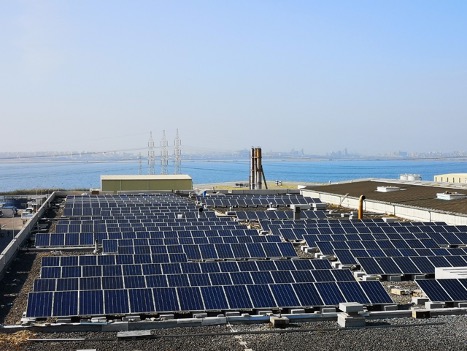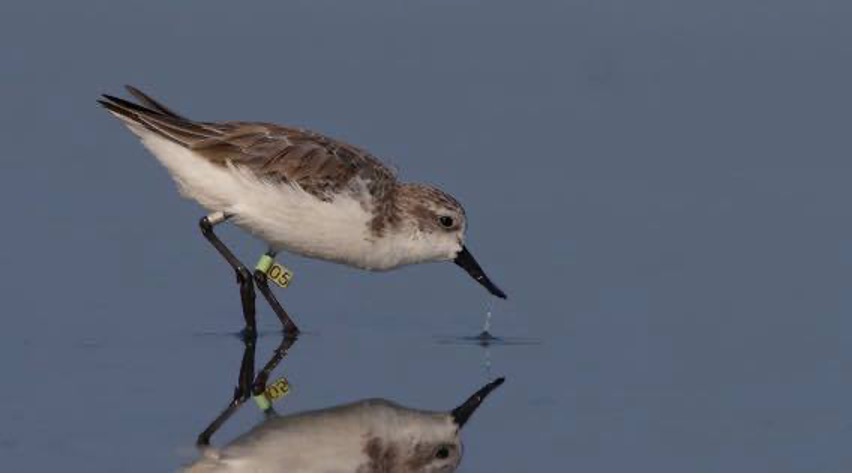Environment & Climate Change:
Egypt recognizes the growing pressures and social vulnerability from climate change and environmental degradation. The poorest and most vulnerable feel the brunt of climate change and its impact the most, suffering from lack of access to and water, energy and other natural resources, while facing disproportionate impacts from toxic industrial effluents. UNDP supports the Government of Egypt to achieve the national “Vision 2030” and achieve the SDGs by 2030 by helping to protect natural resources, biodiversity and supporting green growth. Our strategic partnership with the Ministry of Environment supports efforts to meet international obligations deriving from global environmental agreements.
Egypt was able to reduce carbon dioxide emissions due to energy efficiency, renewable energy, sustainable cities and transport initiatives, with an emphasis on more integrated energy, mobility, land use, and waste management solutions. UNDP supports the Ministry of Environment and partners with climate change mitigation and adaptation, also campaigning to have Egypt’s biodiversity recognized as a central asset for tourism.
Clean and Affordable Energy
To help Egypt reduce its GHG emission, UNDP supported the shift to renewable energy and in 2018, 1.487 million tons of annual GHG emission were averted. The UNDP Energy Efficiency project in partnership with the Ministry of Electricity, helped Egypt achieve annual energy savings of 24.5 MkWh, enough to power 8,000 households.
Catalyzing the Use of Solar Energy

Egypt is ready for a faster energy transition to roof-top PV systems. The “Egypt-PV” projectpiloted over a period of several years by UNDP, the Ministrry of Trade and Industry, the Industrial Modernization Center, the Ministry of Electricity, and the Global Environment Facility lead to a reduction of greenhouse gas emissions, in support of Egypt 2030 Strategy for Sustainable Development and the SDG Agenda.
Between 2018-2022, 50 projects were created:

Egypt-PV successfully implemented 126 solar system plants in 15 governorates with a total capacity of 10.6 MWp, and with a total saving of electricity 17 GWh/year.
Sustainable Transport for Sustainable Cities
In 2019, UNDP supported pioneering bike-sharing scheme at Fayoum University to revive cycling in Egypt and offered university students a cleaner and healthier mode of transportation that reduces emissions & traffic congestion. 14 KM of separated bicycle lanes in Fayoum governorate were created, along with 12 bike stations across the city and campuses. Early in 2020, the high-quality bus system pilot project under the Sustainable Transport Project was inaugurated, marking a new business opportunity for private sector investments in the transport sector to increase the use of public transportation and reduce energy consumption and greenhouse gases emissions. The new lines connect the cities of 6th of October and Sheikh Zayed to the Cairo University metro station and provide a new model in public and mass transportation in Egypt.
Climate Change
UNDP has been an advocate for mainstreaming climate change adaptation and mitigation efforts into Egypt’s national development plans to fulfill Egypt’s commitments towards the international environmental conventions.
In 2019, UNDP continued to support the government of Egypt with adaptation to climate change and protection of the low-lying lands in the Nile Delta from the expected sea level rise, a national priority as per the National Climate Change Adaptation Strategy.
111 government employees have participated in a 6-month training programme 40% of them are women from different government sectors in 8 coastal governorates.
A climate resilient Integrated Coastal Zone Management (ICZM) Management has also started with the participation of all government entities.
Using early warning systems, supported by UNDP, the government of Egypt has made unprecedented preparations for the medicane storm (Mediterranean Hurricane) that hit Egypt for the first time in March 2020, and reduced casualties and economic losses.
2020 witnessed the start of construction works of the soft dike system to protect the low-lying lands in the Nile Delta from sea surges during strong storms. Construction was completed for the first 51 Kms out of the targeted 69 Kms of the dike system, in partnership with Ministry of Water Resources and Irrigation and funded by the Green Climate Fund (GCF).
Phase Out of Ozone Depleting Substances
UNDP works to protect biodiversity and natural resources while sustaining livelihoods. UNDP also supports compliance with other international environmental good practices and commitments on phasing out ozone-depleting substances, managing harmful chemicals and preserving biodiversity. Working with the private sector, UNDP supported the government’s commitment to phase out ozone-depleting substances (ODS) by 2030 under the Montreal Protocol, with permanently discontinued use of over 520.68 tons of HCFC- 141 (equivalent to 57.26 tons of Ozone-Depleting Power).
Support to Egypt's Reporting to Multilateral Environmental Agreements
In 2019, UNDP supported Egypt’s international environmental commitments by increasing institutionalized monitoring and reporting through the production of 2 major reports:
• The Sixth National Report on Biodiversity: To help decision makers track performance on international biodiversity commitments and mainstream biodiversity into productive sectors including tourism & education.
• The first Biennial Update Report to UNFCCC.
ECO-EGYPT

UNDP supported the Government of Egypt to promote eco-tourism through the presidential 3-year initiative “Eco-Egypt”, implemented by the Egyptian Environmental Affairs Agency and UNDP with GEF funding. The concept aims to encourage sustainable, responsible tourism for travelers and reconnect them with Egypt’s many ecological sites and protected areas. As of 2019, ECO EGYPT turned into a nationwide three years campaign led by Egypt’s Ministry of Environment under the auspices of His Excellency President Abd El Fattah El-Sisi. This campaign led to the adoption of several decrees by the Government, including banning of single-use plastics in South Sinai. The first Red Sea Marine Conservation campaign in the Middle East and North Africa (MENA) was launched during 2021 as part of the ECO EGYPT campaign. The main aim of this campaign is to help protect the Red Sea’s marine and coastal environment.
Protected Areas

UNDP supported the establishment of the Green Fayoum Sustainable Destination Programme to transform Lake Qaroun and Wadi El Ryan PA into an International Standard Green Destination for Ecotourism. People living in protected areas are key to the areas’ protection. Improving their livelihoods has always been a fundamental pillar of nature conservation.
-2,400 women were trained on the production, packaging, and marketing of local goods
-24 recreational boats in Wadi Rayan PA were established for local communities.
-Craft shops were established for women to sell their products in Wadi El Gemmal protected area
Mainstreaming Conservation of Migratory Soaring Birds

“Mainstreaming Conservation of Migratory Soaring Birds into Key Productive Sectors along the Rift Valley/Red Sea„ We have been helping to raise awareness about the importance of ensuring safe migration of soaring birds. We have been showcasing how certain sectors such as eco-tourism, agriculture, energy and waste management could benefit from the presence of these birds.

 Locations
Locations



